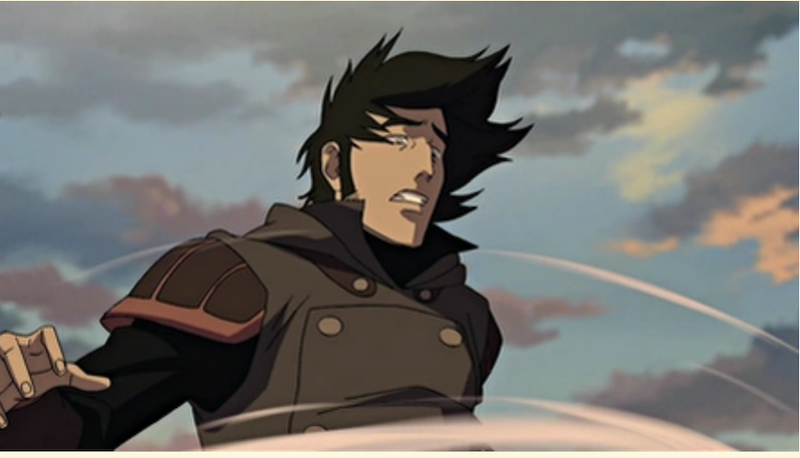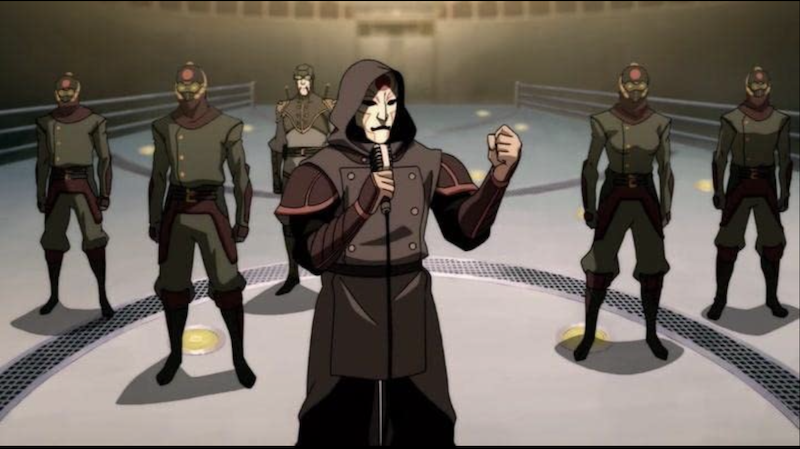How 'The Legend of Korra' Explores the Theme of Politics: Season One
Image Source: Multiversity Comics
Animation sometimes gets a bad reputation in visual media as being too “childish,” but that couldn’t be further from the truth. Just watch the season two finale of The Bad Batch and re-evaluate that stance. Sometimes it takes talented and respected directors like Guillermo del Toro to show people that animation is a legitimate medium.
Avatar: The Last Airbender and The Legend of Korra are great examples of how animation is meant for more than kids. While it’s true that ATLA kind of jumped around and had adventure-of-the-week style episodes, it did tackle some difficult and important topics that are meant for adult consumption. This was even more so the fact for The Legend of Korra, which explored some deep, real topics each season that still resonate today. Many serve as warnings and illustrate what happens when you don’t heed them.
RELATED:
Each season tackled major political issues that, while usually relegated to history lessons, sadly have pertinent and dangerous application to the world today. Season one, for example, tackled the issue of demagoguery and populism.
Image Source: YouTube
In season one, the antagonist is quickly established to be someone by the name of Amon. He leads a revolutionary counter-culture of non-benders. His followers are opposed to the benders of the world and see their use of bending as a means of segregating and subjecting the rest of the non-bending population into a subservient class. The potency and danger of Amon is that his message has attractive value to it. The writers establish early on that benders, like Korra, are reckless, and when they use their bending, there’s collateral damage and innocent people get hurt, or have their property damaged. What’s more, the leaders of the city, a city meant to bridge the differences between nations, are a council of (you guessed it) benders.
Amon is eventually proven to be, as all demagogues are, a fraud. By that time, however, the damage is done. His words have found a following, and ideas are like glitter: nearly impossible to get rid of. What’s worse is that among those who listen to his message, there’s rampant confirmation bias. Every time a bender causes trouble or damage, like Korra was prone to doing, it just served up an example of what Amon was talking about on a silver platter. What makes Amon such a potent villain is, at a fundamental level, his message was right: being a bender shouldn’t make you enjoy more privileges than non-benders. He claimed to want everyone to be on an equal level. The problem was that, although he was right from a certain perspective, he was wrong to believe that those born with the gift of bending deserved to have it taken away.
Image Source: Fandom
Another point of warning comes from the attraction of these ideas to the wealthy and powerful. Hitler wouldn’t have been able to do much of anything without the support of capital and the wealthy. That’s clear in season one as well, when we learn that Hiroshi, Asami’s dad, the wealthiest man in the city, and a man of industry who builds machines and cars, has joined with Amon. Why? His wife was killed by a fire bender. His anger and hurt finds an outlet with Amon and his agenda, and he directs his power and wealth toward that end. What happens then when the wealthy, with nearly unlimited resources, buy into the lie? They already have a massive influence on politics and popular culture, and the amount of damage they can do by latching onto dangerous ideologies is frightening. There are troubling signs of that already in our own reality, when billionaires buy social media platforms and then repeat toxic, hateful ideas under the guise of “asking questions.”
Season one is meant to serve as a warning. It asks us to recognize that emotions are often strong and they override our reasoning, tricking us into following someone who offers a simple solution to something they feel is wrong. He offered a quick solution: take their bending away. It’s reminiscent of Hitler and his placing of all of Germany’s problems after WWI on Jews. Societal problems, however, don’t have quick fixes, and none of them should ever involve the elimination of a group of people. That’s the power of demagoguery: charismatic speakers claiming to have the solution to people’s ills, but in reality, it’s just grand projection, taking the anger of the population and directing it at a smaller, usually weaker, group. Sure, it seems odd here to think that benders are weaker given their abilities, but they are smaller in number than non-benders.
Image Source: IMDb
It’s easy to shift our negative emotions onto others. It moves the stress of coping onto someone else, usually someone perceived to be weaker. That perception is easily influenced when people realize the numbers game. There isn’t much thought needed, especially when there’s a loud leader telling you what to think and do. Their authority grows when they play the victim, or talk like everyday people. That makes them one of you, and relatability is a powerful attractor. So much so that it can make working class people believe a billionaire is just like them. Amon hides his face because he claims to have been burned by a bender, instantly marking him as one of the crowd because they all feel slighted in some way by benders. There’s a lot of symbolism in that too, and symbols are powerful tools.
All that considered, this is a work of fiction, and things, for the most part, work out for Korra and Republic City. Amon is exposed to actually be a bender, a water bender at that, and people realize they were duped. The city realized the error of their ways, but they learned a lesson, removing the bender council and holding democratic elections for a president. If only it were like that in real life…that’s why these seasons should serve as warnings. In reality, people can be shown mounds of evidence and proof that the person they’ve been following is a charlatan, and they’ll still do mental gymnastics to stick to their beliefs. Pick your concepts: moral decoupling, belief perseverance, confirmation bias, etc. It all comes down to a hard truth:
Let others tell you what to think, and you’ll be led wherever they want.
READ NEXT:
Source: Fandom















